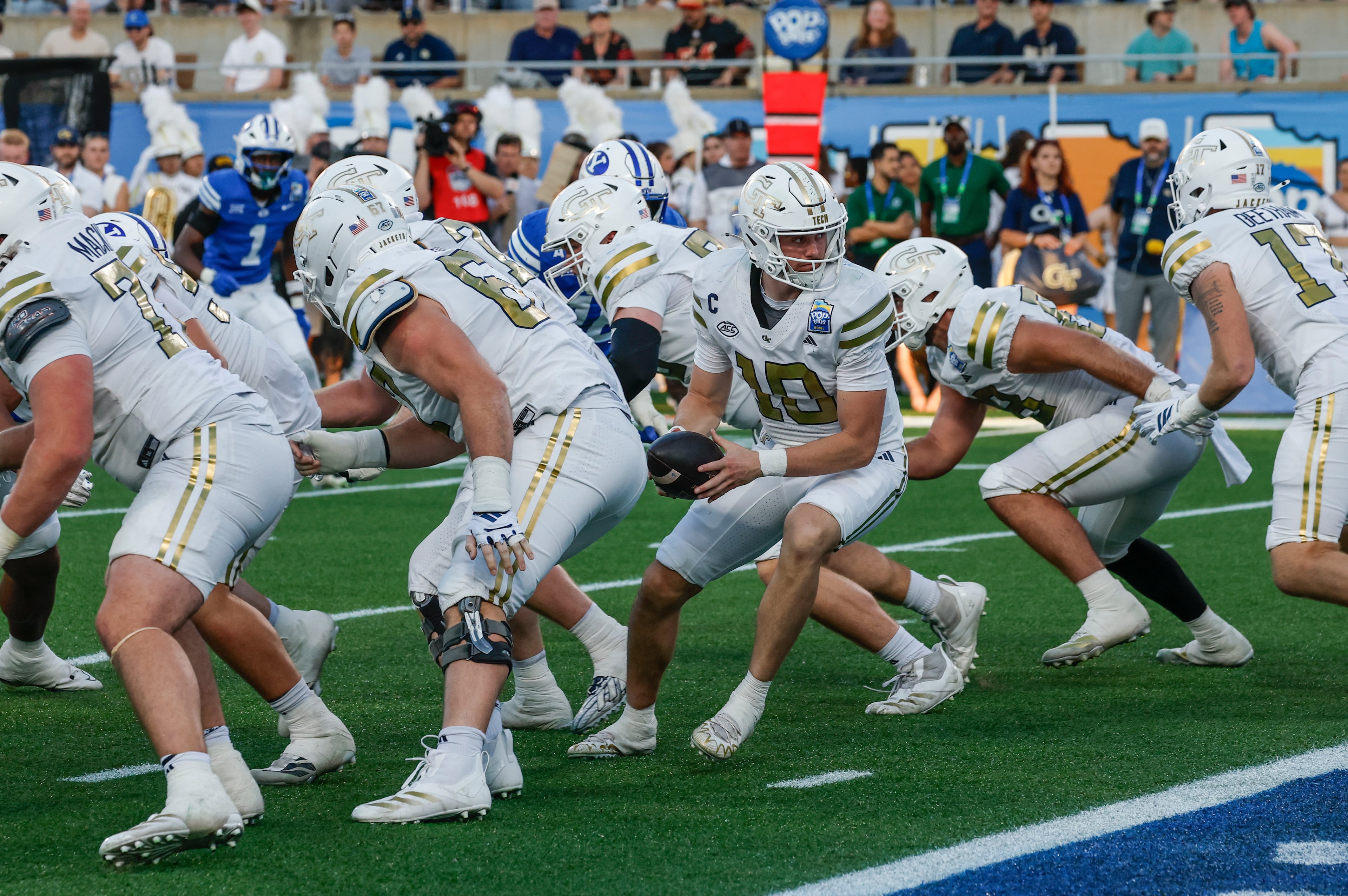Geoff Collins bringing a different approach to scout teams
To the list of ways that Georgia Tech coach Geoff Collins is reshaping the team, add another that he explained Friday.
After the Yellow Jackets returned from a Friday practice at Mercedes-Benz Stadium – the team worked out there to give its seniors a chance to get on the field there, he said, as they won’t be on the team when the Jackets start a five-game series there in 2020 – Collins gave an overview of how he will operate the scout teams.
Scout teams are a staple of football teams everywhere, the groups of backups who run the plays of coming opponents to give starters and key reserves a picture of what they’ll face. It is a responsibility of selflessness. Scout-team players are there normally because they’re not expected to contribute in actual games. Collins’ distinction – he does not have scout teams.
“Everything we do is about development,” he said. “We are a developmental program, so we don’t call them scout teams. We call them developmental teams.”
The difference, Collins said, is that scout teams typically run plays drawn up on cards and shown to scout-team members on the practice field. Collins’ approach eschews the cards. Instead, players will run plays out of Tech’s own playbooks that approximate what the opponents do.
“If a team’s playing a lot of ‘quarters’ (pass coverage), we’ll call our quarters coverage, but it’ll be in our vernacular,” he said. “It’ll be our checks, our words, our schemes.”
In essence, rather than carrying out opponents’ plays, developmental team members are getting repetitions at the assignments that they’ll have to execute when they’re out on the game field. It’s one way of developing players to get “above the line,” which is Collins’ version of a depth chart. Players who are above the line are deemed capable of contributing in games. All players above the line will play in games, Collins has said.
“So they just continue to develop and they have a chance to get rewarded either by traveling or being moved up (off the developmental team) because their play forces us to move them above the line,” Collins said.
As a further emphasis to his commitment to this approach, Collins himself runs the defensive developmental team. A benefit of establishing that practice time as developmental is that it can change players’ perception of it. Rather than servitude, it is an opportunity to improve. In that case, they’re likely to practice harder and give the players who are above the line more of a challenge, which in turn prepares them better for games.
It’s hardly unusual for players to develop on a normal scout team that uses cards. Much of it may lie in a player’s own motivations. But Collins’ tweak would seem to have its merits.
“It seems like it should just make sense in college football, that this is how it should be done,” Collins said. “This is the way we’ve done it. It’s worked really well for us.”
There are exceptions. For teams that don’t have plays similar to Tech’s – such as Week 3 opponent The Citadel, which runs an option offense similar to former coach Paul Johnson’s – cards might be used.
“But (otherwise), we’re running our offense and our defense every day,” Collins said.
Collins’ methodology also ties to his plans for determining which freshmen will be redshirted and which will play. The NCAA’s new rule that permits players to participate in up to four games but still retain their redshirt plays a part.
The rule allows players more runway to develop to the point where they are deemed above the line. If, for instance, a player has developed enough late in the season – “because they’re not using cards, because they’re playing in our scheme every single day, playing against really good players every day,” Collins said – where coaches believe he can contribute, then they can play him for the final four games of the season, a maneuver that will allow him to still keep his redshirt.
(In explaining the philosophy, Collins identified three freshmen – linebacker Demetrius Knight, running back Jamious Griffin and defensive end Chico Bennett – who he said probably won’t need that time to develop, a strong indication that they’ll play this season.)
“We go with the assumption that we all want them all to play,” Collins said. “Then their development dictates whether they are above the line and whether they get in games or not.”



